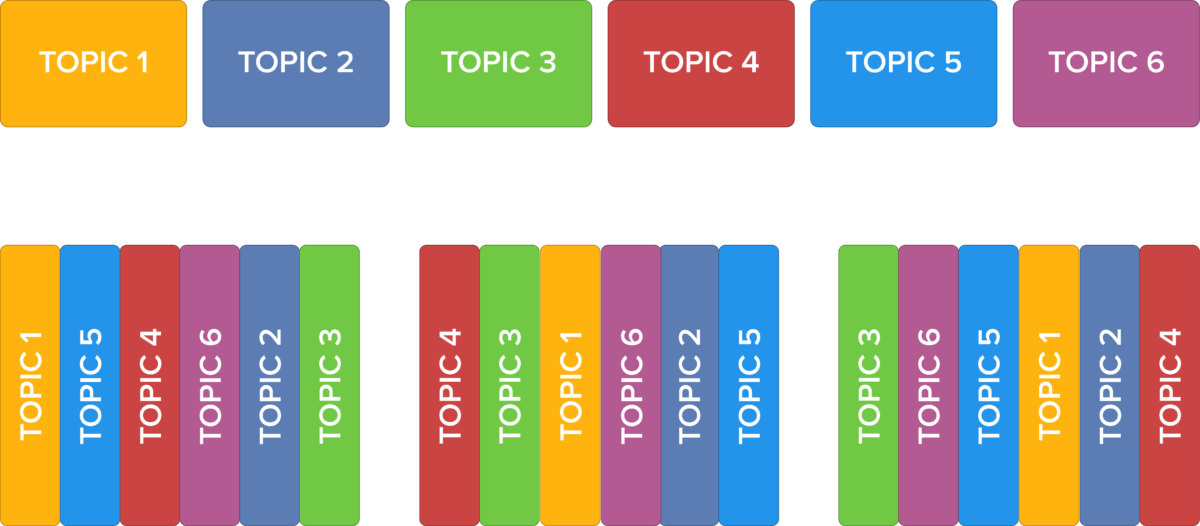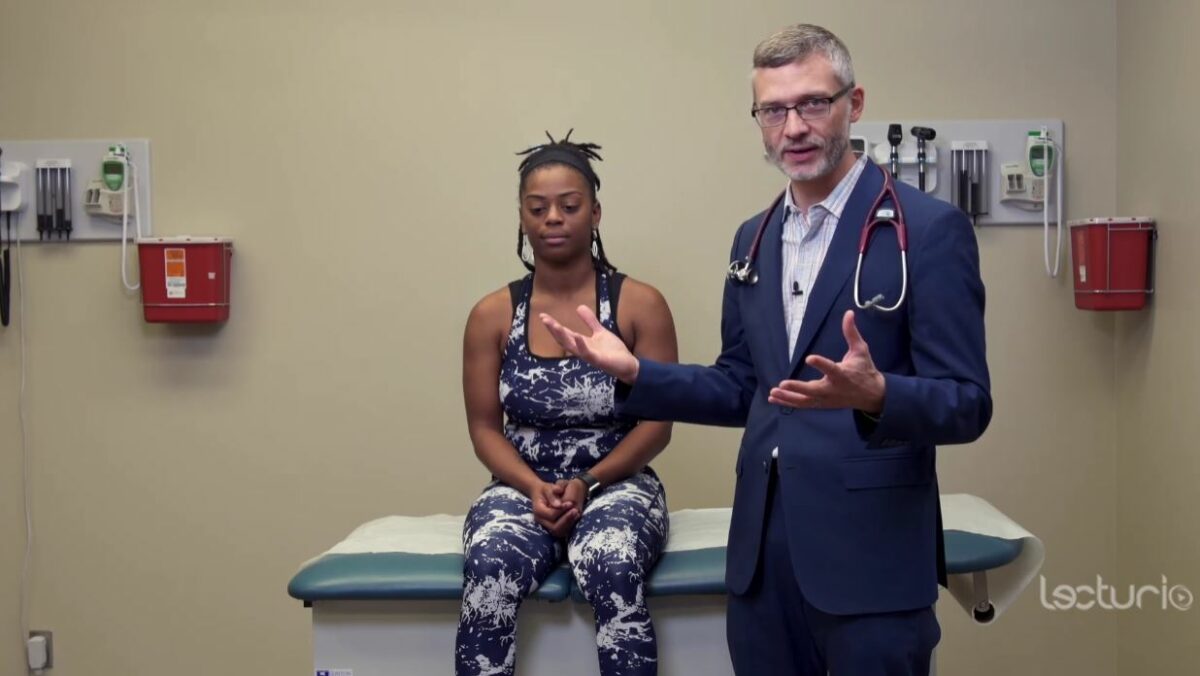There are some important things to know about how to succeed in medical school. First, learn helpful study techniques. Second, evaluate what resources you can use and figure out how to best utilize them.
What are the Best Study Techniques?
Everyone learns a little differently, but research has identified key ways to study and retain information that you can easily implement into your daily routine (if you’re not already subconsciously using them!). Some effective learning methods include spaced learning, interleaving, active learning, and dual coding.
Spaced Learning
Spaced learning is a way to learn sizable pieces of information by spacing the time between each review of a previously learned material.
As a medical student, the amount of information you have to remember over time is extensive. With Spaced Learning, you’re ensuring that you’re not only gaining and retaining new knowledge, but that you’re also bringing up concepts you learned a while ago and ensuring that the information is encoded into your long-term memory.
Interleaving
Interleaving is the practice of varying or mixing up related concepts being taught/learned, as opposed to studying them in a blocked fashion as you may be accustomed to. Although blocked studying might seem faster and easier, it’s less beneficial overall. Interleaving teaches you not only how to tackle a problem, but also when to utilize the knowledge and skills you have learned.

Dual Coding
Science shows that you can get better results from studying by stimulating two processing routes. By engaging both the verbal and visual information pathways in our brain, we ensure more effective knowledge transfer and retention. This is known as dual coding, and it has been shown to facilitate better comprehension of information while avoiding overstimulation. A few ways to incorporate dual coding into your studies are:
- Use different media types when studying a concept
- Incorporate images into flashcards or review decks
- Incorporate images and alternative media into slides that you make
- Draw images for your review or use recordings and videos
Active Learning
Instead of passively watching high-yield medical videos or multitasking while studying, active learning gives you direction and helps you stay focused on the content. To practice active learning, you should do small self-check-ins before, during, and after you review.
Before you start studying:
- Establish what you’re about to learn and what you already know about the subject
While reviewing the material:
- Make sure you know how it fits into the bigger picture
- Make sure that you understand what you just watched or read
- Write down keywords you might want to use for future review
After you’ve completed your study session:
- Ask yourself what you can take away from the study session
- Take notes of what you need to review or keep studying the next time you approach this topic
Study Smarter, Not Harder!
There are countless online courses, lectures, and seminars that can help you understand how to effectively study and learn. One place you can start is by watching the presentation below! It outlines an introduction to learning science and provides concrete tips that can enhance your studying.
By using evidence-based learning science strategies, you can improve your learning and performance. But now the challenge is seamlessly utilizing these study techniques with your chosen study tool. Keep reading to see how you can find the most up-to-date, high-yield study resources.
What are the Best Study Tools to Use as a Medical Student?
The best study tools put learning science into practice. You should choose study resources that don’t just list effective study techniques; the techniques should be built into the platform itself and be up-to-date with the research about the best and most effective ways to learn.
Content in an online study platform or other resource should be built to help you learn for the long-term, not just to cram for your upcoming exam. It should incorporate all aspects of learning science intuitively and without you having to do the work yourself.
Choosing the right resources can be a bit more complicated than just a Google search. While there are a myriad of study resources and online platforms available, they may not have everything you need to make your time in medical school as successful as possible. The resources you use should efficiently and effectively help you study and thoroughly understand the material.
This is one of the most impactful decisions you will make as a medical student. These resources will be your guide and companion as you navigate medical school, exams, clinical case studies, study sessions, and more.
How Can Lecturio Help Me as a Medical Student?
Lecturio is a study tool completely built on the science behind effective studying, including the aforementioned study techniques. When you watch the video lessons, you’re always asked quiz questions to make sure you understand the content (active learning). These questions go into an algorithm that feeds the questions back to you over time based on your confidence in your answers (Spaced Learning).
You can simultaneously utilize both the concept pages and the video lessons (dual coding), and dedicated learning paths will ensure that you review material throughout your time in medical school, not just the night before an exam.
Lecturio also has detailed guides that can help you prepare for medical school, survive medical school, study for the USMLE® Step 1, and we even have a guide to help you know what to do if you face failure. Now that you will spend so much of your time studying, you can even learn how to optimize your study space to make the time engaging and efficient. Organize your space, structure your time, and don’t forget to take breaks for your mental and physical health!
It is always a good idea to broaden your studies. Study platforms that specialize in different areas can help deepen your knowledge and supplement your studies. Diversifying your toolkit enables you to have a wide variety of resources to choose from, and you can reach for any of those tools precisely when you need them to study for your upcoming exams or review topics for class.
Choose Wisely!
Good study tools can help you from your premed years to beyond graduation and residency. Choosing the right one may seem like a daunting task, but now that you know exactly what to look for, you are well on your way to success in medical school and beyond.




